|
|
本帖最后由 Nora老师 于 2025-10-3 19:09 编辑
From PSLE 2025 to next year's exams - A one-year preparation plan for P5 parents
The 2025 PSLE has concluded, and this year's candidates generally reported that Paper 1 was more challenging than expected, while Paper 2 was relatively manageable.
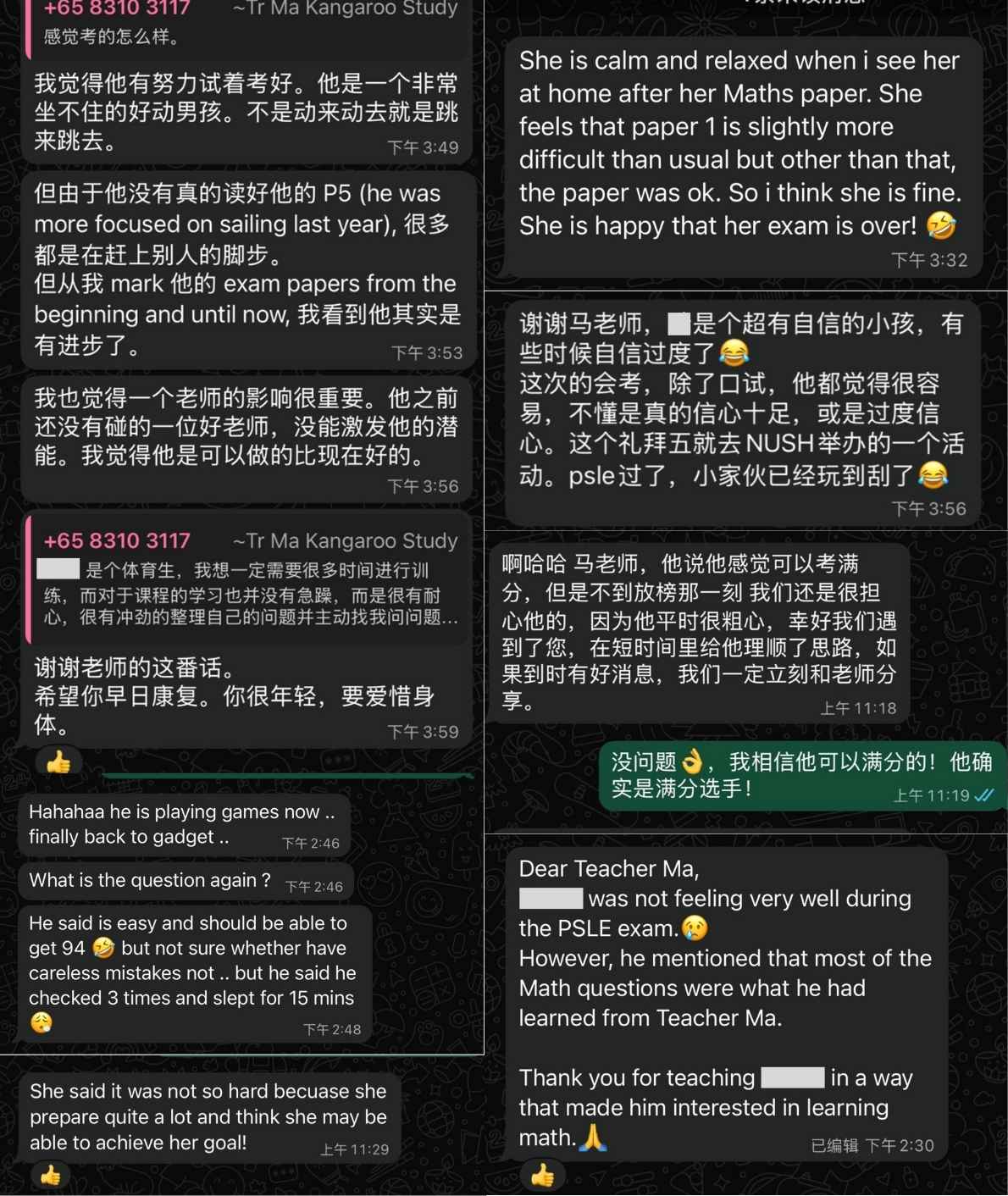
Let's take a look at the collected PSLE 2025 Paper 1 questions:
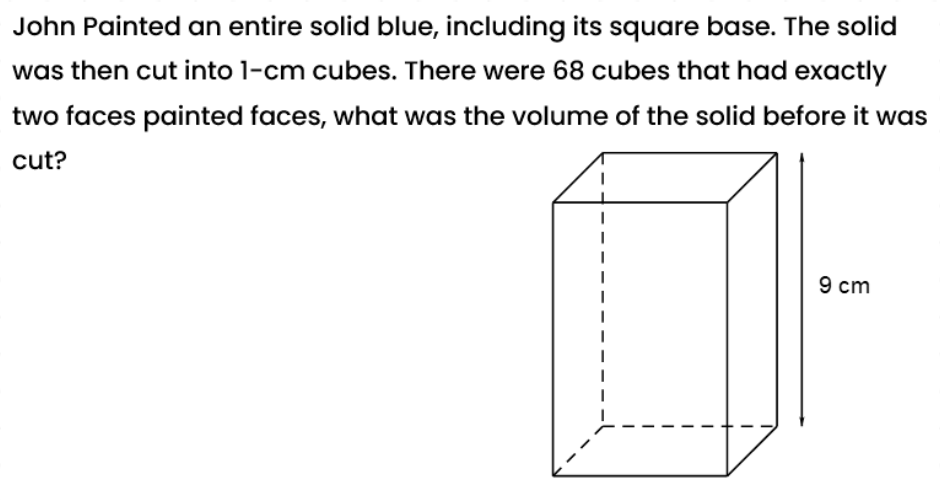
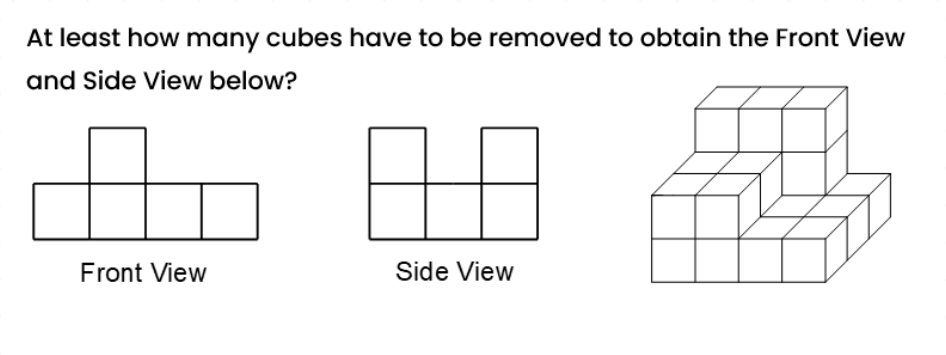
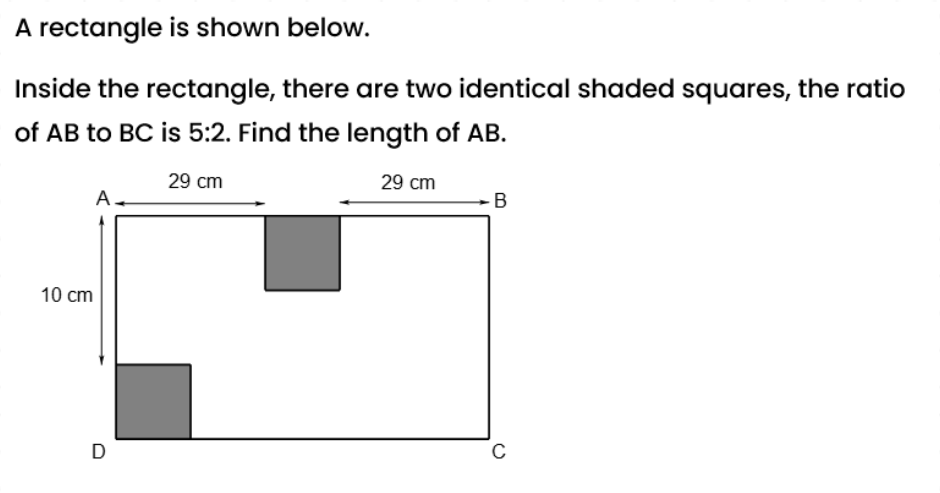
From several challenging questions in Paper 1, it can be observed that the focus is on Area and Volume. Among these, the "colored cubes" problem also appeared in the Primary 5 SA2 exam. However, this time the question was not about how many unit cubes were colored, but rather approached from the reverse perspective, testing whether students have a deep understanding of the "colored cubes" problem and the ability to think flexibly and adapt.
From collected Paper 2 Questions:

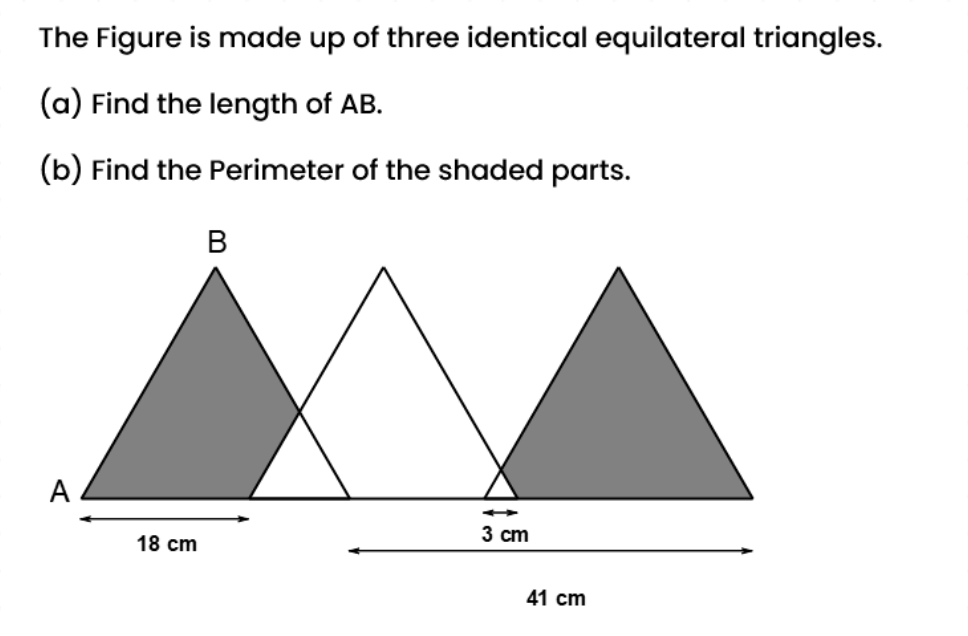
One of the questions is a speed problem, and the final challenging question also revolves around Area and Volume.
From the speed problem, it becomes evident that while the underlying concept is the same, the question is presented in a completely new way. The problem itself is not inherently difficult but requires flexible application of formulas.
The final question examines the properties of two identical shapes when they overlap. The overlapping parts are identical, and the non-overlapping parts are also identical. This same concept has been tested in the Prelim papers of some schools, and you can compare them for reference.
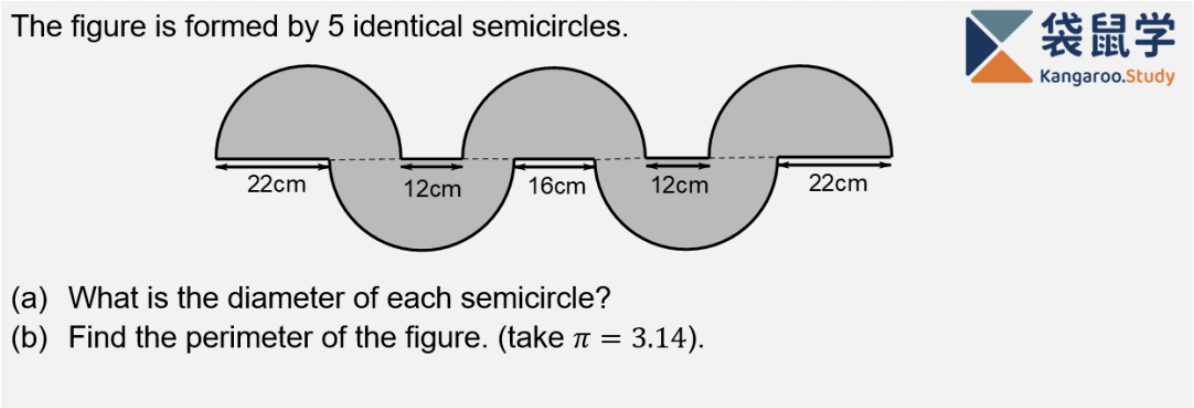
Overall Assessment of PSLE 2025:
The design of Paper 1 was more flexible and varied compared to last year, while the difficulty level of Paper 2 was moderate. The challenging questions in the entire exam focused more heavily on Area and Volume, with higher demands on understanding graphical relationships and spatial visualization in solid geometry. All the topics tested have appeared in previous years' PSLE and Prelim papers, with no unexpected concepts—meaning it is entirely possible to prepare in advance.
For students who will be taking the PSLE 2026 next year, they need to start preparing for PSLE Mathematics in the next 12 months, divided into three main phases.
P5 End-of-Year holiday: Advance Learning of Primary 6 Topics
Based on past experience, it is highly recommended to complete all Primary 6 topics during the year-end holidays of Primary 5. To support this, we have designed a holiday program syllabus covering the entire Primary 6 math curriculum in 10 lessons.
Real Case 1:
A parent wanted their child to start practicing PSLE past-year papers during the holidays but found that the child had not yet learned topics like "Circles," struggled with "Nets," and felt overwhelmed by combined topics like "Volume and Rate." Without knowing how these topics are taught in school, the parent was unable to provide effective guidance.
Real Case 2:
Another parent shared that after completing the holiday program, their child gained confidence in Primary 6. Since the child had already learned the topics, school lessons served as a helpful review.
P5 End of Year Class Syllabus:
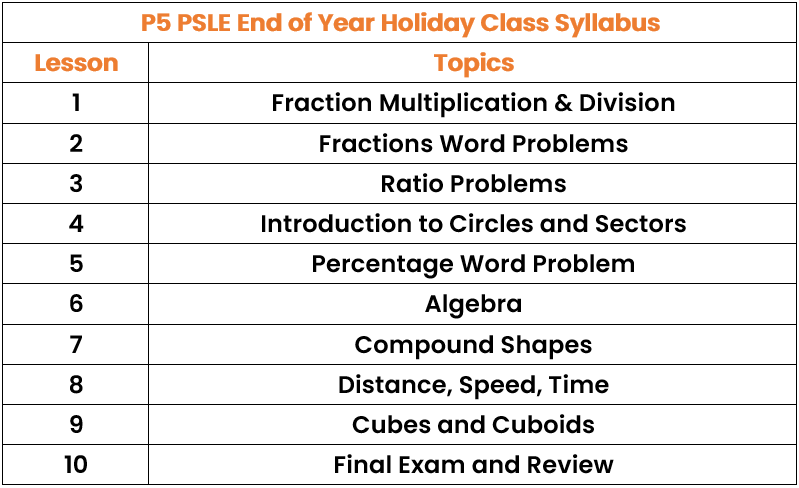
P6 First half year: Two Rounds of Comprehensive Revision
We conduct a comprehensive review of all 12 topics and 77 knowledge points from the past three years. Due to the large number of topics, this review spans 22 lessons covered in Semester 1 and the June holiday class (15 + 7 lessons). Each lesson covers 3-4 topics to ensure thoroughness. Past 10-year PSLE questions are categorized by topic and integrated into each lesson, meaning completing the review is equivalent to practicing a full set of past-year papers.
P6 Semester 1 Syllabus:
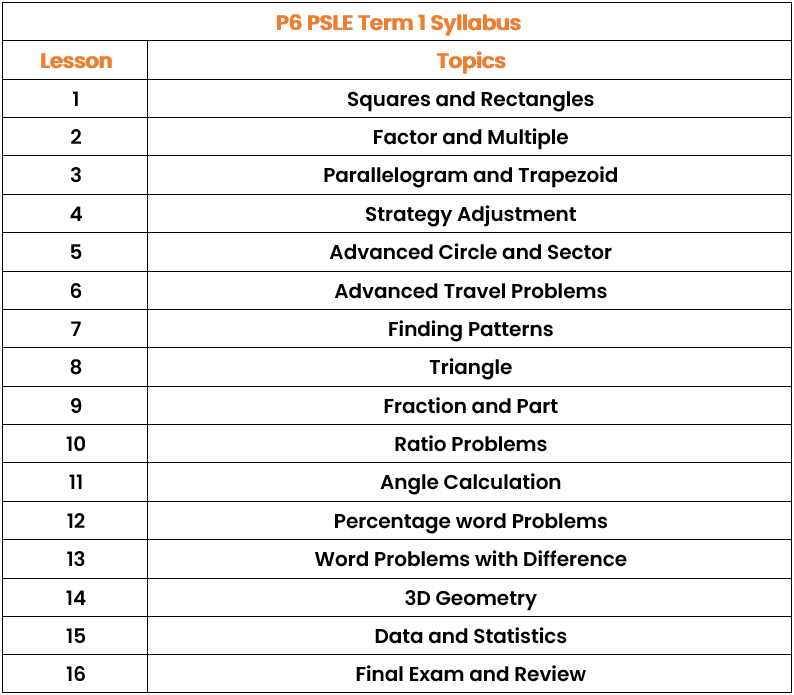
P6 June Holiday Class Syllabus:
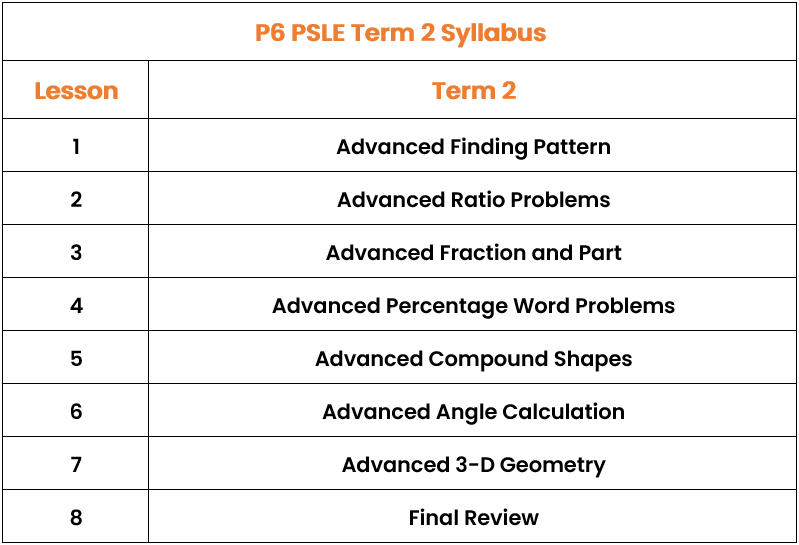
After the first round of revision, students will proceed to the second round.
This phase shifts the focus from individual topics to solving complex problems involving topic integration, variations, and unconventional question types—specifically targeting the most challenging questions that may appear in Paper 1 and Paper 2.
P6 Semester 2 Syllabus:
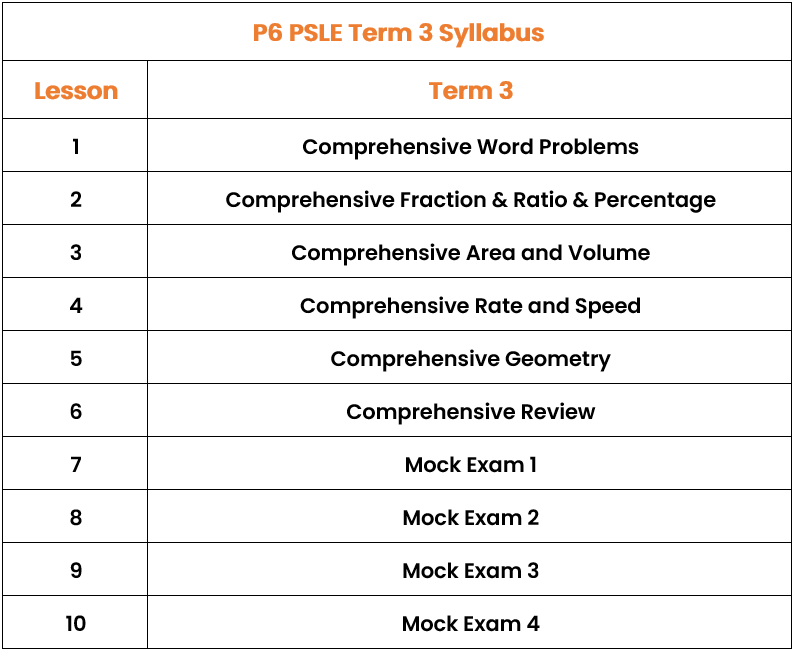
Last 3 month before PSLE: Sharpening Exam Skills & Personalized Learning
Observations from this year's students reveal that they tend to make more mistakes under exam conditions, and many struggle with time management and revision during the test.
To address this, we have scheduled four mock exams in the four weeks leading up to the PSLE. These help students identify gaps, build exam temperament and techniques, and gain confidence by tracking their progress through score improvements.
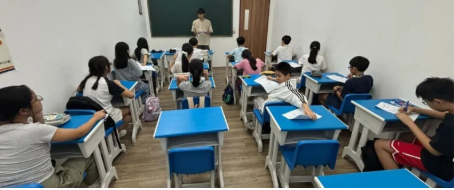
Additionally, since each student faces unique challenges, we organize dedicated Q&A sessions in the final four weeks to ensure all doubts are resolved before the exam.
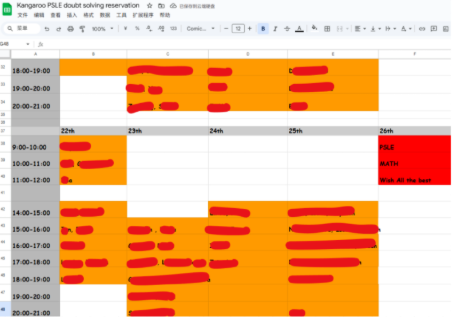
Before attending the Q&A session, each student needs to organize their incorrect practice problems or inform the teacher about their weak chapters so that the teacher can prepare corresponding exercises.
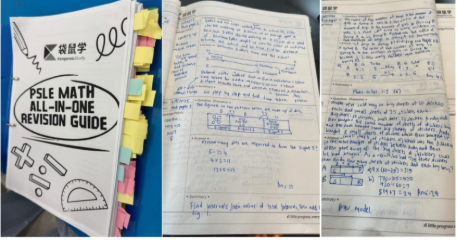
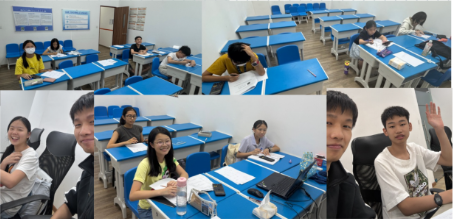
By completing these three phases, students can enter the PSLE Math exam with confidence and no regrets.
If your child is preparing for next year's PSLE, consider joining our WhatsApp Study Group.
We share learning resources, free activity information, and have dedicated teachers available to answer questions from both students and parents.
Group Link: PSLE(2026) Study Group
|
|